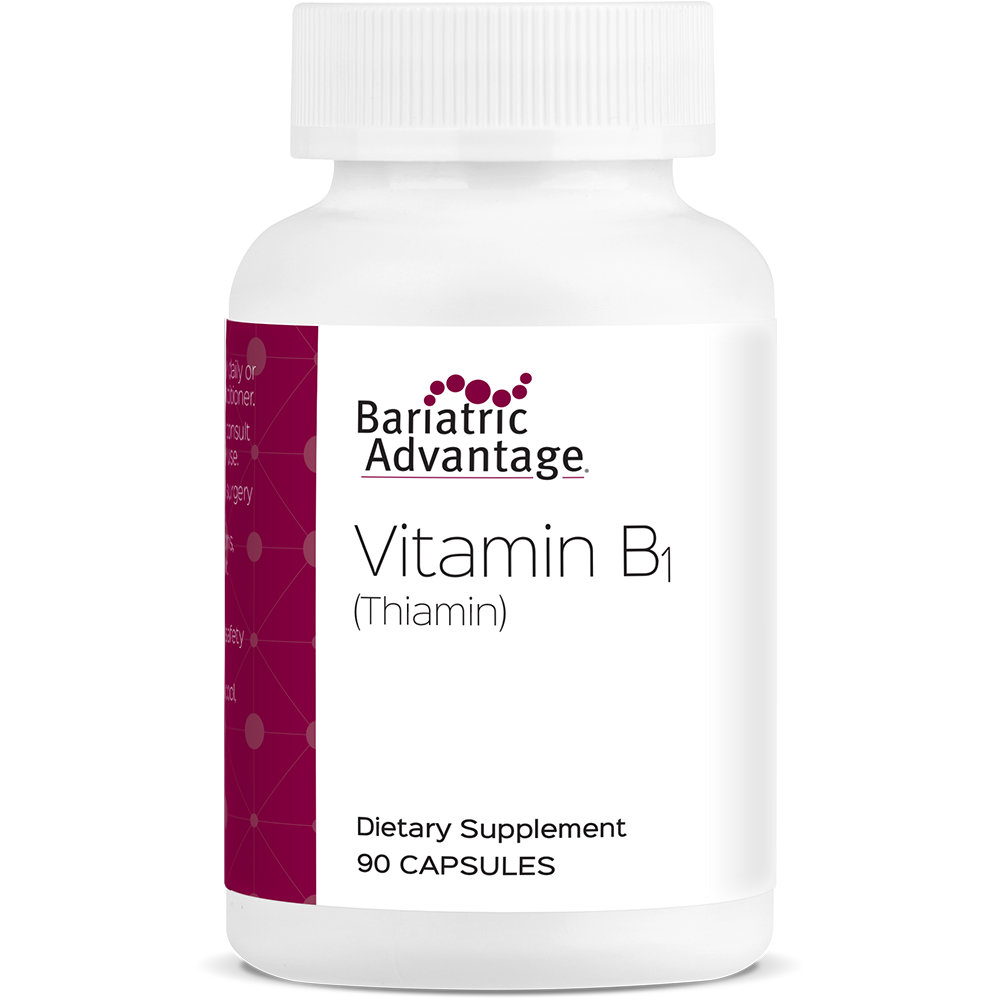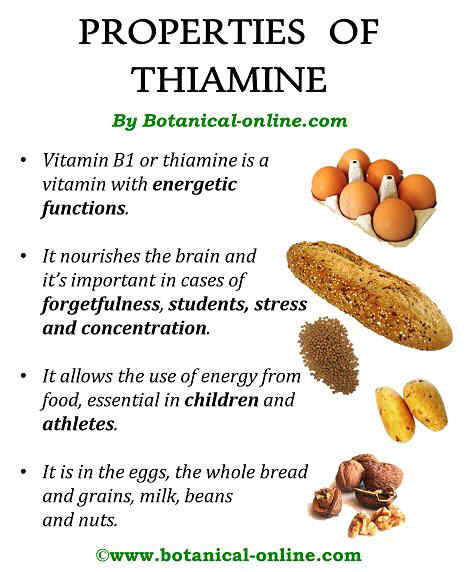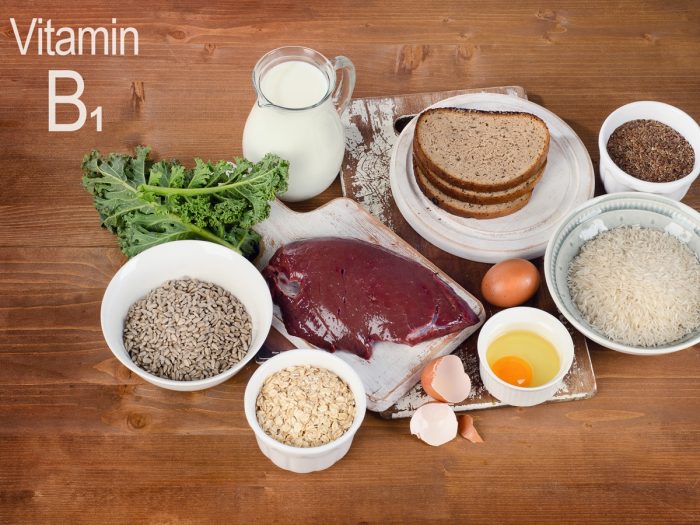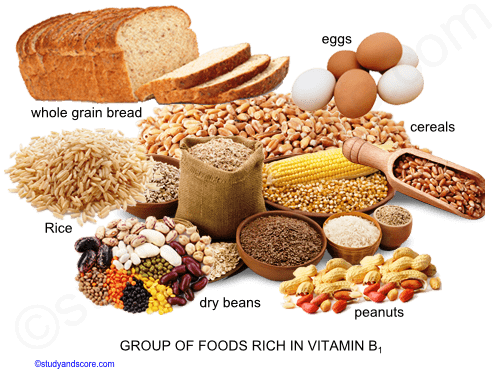Vitamin b1 more commonly known as thiamin is a water soluble vitamin and part of the b vitamin family. Thiamine overdose symptoms are unlikely to occur because this vitamin will be excreted in urine when consumed in excess.
 Nutricost Vitamin B1 Thiamine 500mg 120 Capsules
Nutricost Vitamin B1 Thiamine 500mg 120 Capsules
vitamin b1 how much to take is important information accompanied by photo and HD pictures sourced from all websites in the world. Download this image for free in High-Definition resolution the choice "download button" below. If you do not find the exact resolution you are looking for, then go for a native or higher resolution.
Don't forget to bookmark vitamin b1 how much to take using Ctrl + D (PC) or Command + D (macos). If you are using mobile phone, you could also use menu drawer from browser. Whether it's Windows, Mac, iOs or Android, you will be able to download the images using download button.
Vitamin b1 deficiency on the other hand can be a lot more harmful.

Vitamin b1 how much to take. Thiamine is a vitamin also called vitamin b1. Daily intake of thiamine depends on your age and sex. With many vitamins and minerals you can safely take a dose much higher than the rda or dv without coming close to the ul.
A minimum daily dose of each vitamin is necessary to maintain good health. Do not take more than 10mg of vitamin b6 a day in supplements unless advised to by a doctor. Continued for instance the average person can take more than 50 times the rda of vitamin b6 without reaching the upper limit.
Vitamin b1 is found in many foods including yeast cereal grains beans nuts and meat. Men older than 19 years should take 12 mg a day while women older than 19 years need 11 mg a day. Thiamine is an essential nutrient that all tissues of the body need to function properly.
If you take vitamin b6 supplements do not take too much as this could be harmful. Thiamin acts as a cofactor. Vitamin b1 or thiamine supports normal cell function and helps your body convert food into energy.
Significantly exceeding this dose however can cause illness. B vitamins help support adrenal function help calm and maintain a healthy nervous system and are necessary for key metabolic processes. Why is vitamin b1 necessary.
How much vitamin b1 should i take a day. Thiamine was the first b vitamin that scientists discovered. Like the other b vitamins thiamine is water soluble and helps the body turn food into energy.
The ideal dose of vitamin b12 varies based on your gender age and reasons for taking it. Vitamins are required for life. However during pregnancy and breastfeeding women should increase their daily intake to 14 mg.
This is why its name carries the number 1. Vitamin b1 is a water soluble vitamin which means that if you take in more than you need youll excrete the excess in your urine. Biotin vitamin b7 biotin is needed in very small amounts to help the body break down fat.
In general the symptoms of vitamin toxicity include nausea gastrointestinal problems like constipation and diarrhea hair loss rashes and nerve damage. It is often used in combination with other b vitamins and found in many vitamin b complex products. Because your body gets rid of what you dont need it is highly unlikely that youll take in too much vitamin b1 and there no known risk of poisoning connected to the vitamin.
This article examines the evidence behind the recommended dosages for b12 for different people and uses. Vitamin b12 is a water soluble nutrient thats required for many crucial processes in your body.
 9 Benefits Of Thiamine Vitamin B1 Sources Dosage
9 Benefits Of Thiamine Vitamin B1 Sources Dosage
 16 Science Backed Benefits Of Vitamin B1 Thiamine Well
16 Science Backed Benefits Of Vitamin B1 Thiamine Well
 Properties Of Vitamin B1 Thiamin Botanical Online
Properties Of Vitamin B1 Thiamin Botanical Online
 Vitamin B1 Or Thiamin Infographic Vitamin B1 Or
Vitamin B1 Or Thiamin Infographic Vitamin B1 Or
 9 Benefits Of Thiamine Vitamin B1 Sources Dosage
9 Benefits Of Thiamine Vitamin B1 Sources Dosage
 Vitamin B1 A Vital Human Nutrient Belongs To The Vitamin B
Vitamin B1 A Vital Human Nutrient Belongs To The Vitamin B
 Vitamin B1 Or Thiamin And Vector Set Of Vitamin B1 Rich Foods
Vitamin B1 Or Thiamin And Vector Set Of Vitamin B1 Rich Foods
 11 Impressive Vitamin B1 Thiamine Benefits Organic Facts
11 Impressive Vitamin B1 Thiamine Benefits Organic Facts
 Vitamin B1 Thiamine Thiamin Functions Benefits And
Vitamin B1 Thiamine Thiamin Functions Benefits And
 Vitamin B1 Sources Deficiency Function Absorption
Vitamin B1 Sources Deficiency Function Absorption

